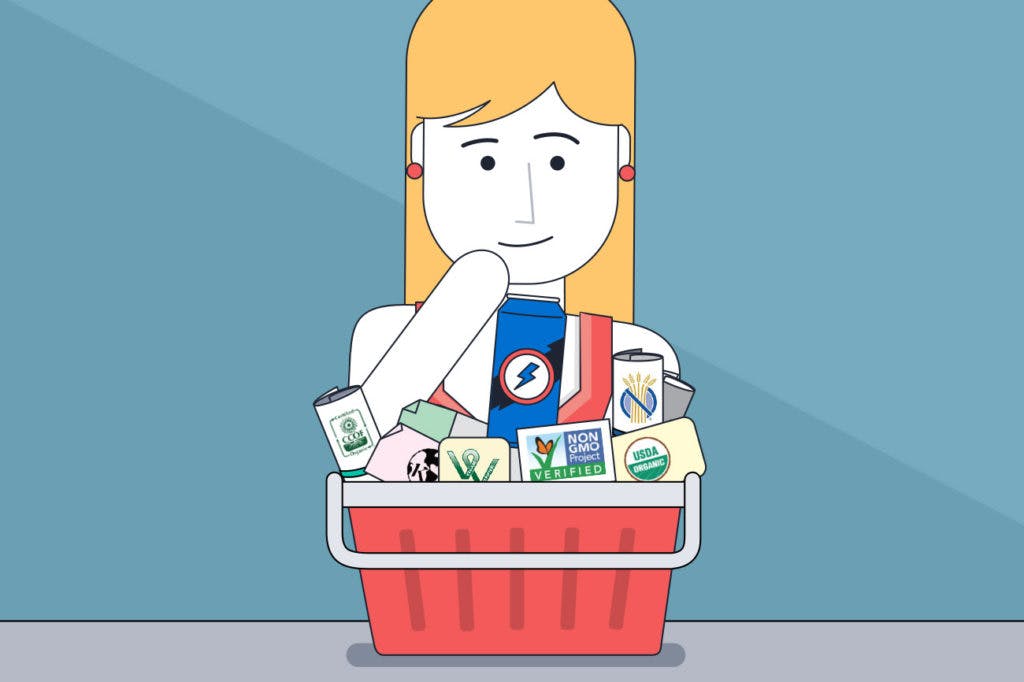In general, assigning labels to people or things is frowned upon.
“Jane is the pretty one.”
“John is the brainy one.”
“Pepsi is the new Coke.”
(Okay, maybe that last one isn’t really true. Even if it is, I’m not going to get into a Coke vs. Pepsi battle with you.)
But you get what I mean. Even when they’re meant well, labels can pigeonhole the subject and can seem unfairly limiting or even unfairly gained.
There’s one place, though, where labels are everything. A place where they are highly sought after, highly revered: The grocery store.
“Would your product benefit from pursuing one or several of these certifications?”Don’t believe me? Go take a look at your local Safeway or Albertson’s (or, in my case, the dreamy Mariano’s, aka my happy place) and see how much square footage they’ve devoted to products bearing the label “natural,” “organic,” “GMO free,” “hormone free,” and the like. I’d be shocked if at least one full, stretching aisle—both sides!—wasn’t dedicated to products specifically fitting these descriptions, produced by companies that make only these kinds of products.
But wait! Check the other aisles as well, and you’re sure to find more natural, organic, and other specially labeled products tucked in among those without.
It’s a veritable organic-natural-palooza!
And as the natural/organic/specialty market continues to grow, these labels are only going to be more important to consumers. Which is great—except that those labels mean doing a looooot of heavy lifting. One doesn’t just get to slap one of these labels on a product and call it a day. Often these labels are the end result of a very long certification process. So like I said, the increase of products with specialty labels and certifications is great–but only if you’re identifying and pursuing the certifications and labels that are right for your product.
Labeling a product with a specialty designation can be great. And as entrepreneurs with innovative products, I’m guessing you’ve looked into the different certifications, qualifications, and other –ations your product might bear. You know the specifics—like an organic label on products means that at least 95% of your product is organic by weight. Or that a “no added sugar label” doesn’t mean your product has no sugar, it just means that you’re not contributing to the cause. Or that a “natural” label, to quote a 2014 Business Insider article, means, ahem, “diddly squat” in terms of any actual regulation.1http://www.businessinsider.com/what-different-food-lables-mean-2015-10
“One doesn’t just get to slap one of these labels on a product and call it a day.”But do you know the specifics of how those certifications will affect your product and its perception? Ultimately, are these labels really benefiting your product? You know your product best, and your target audience (and if you don’t, see my previous post on knowing your product like the back of your hand). Would your product benefit from pursuing one or several of these certifications? Will the time and expense on the front end be worth the return? Will having the label increase your visibility to consumers, or are there other ways your product can stand out on store shelves? Will a certain label gain you access to different retailers or additional consumers?
These various labels that tout your certification, while great to have, are only great if they are actually right for your product. Maybe it is the brainy one, or the pretty one, or even the new Coke! And maybe labeling it as such will help spread that message and your product’s reach. But approach the labeling process cautiously, lest you pigeonhole your product into something it’s not.


